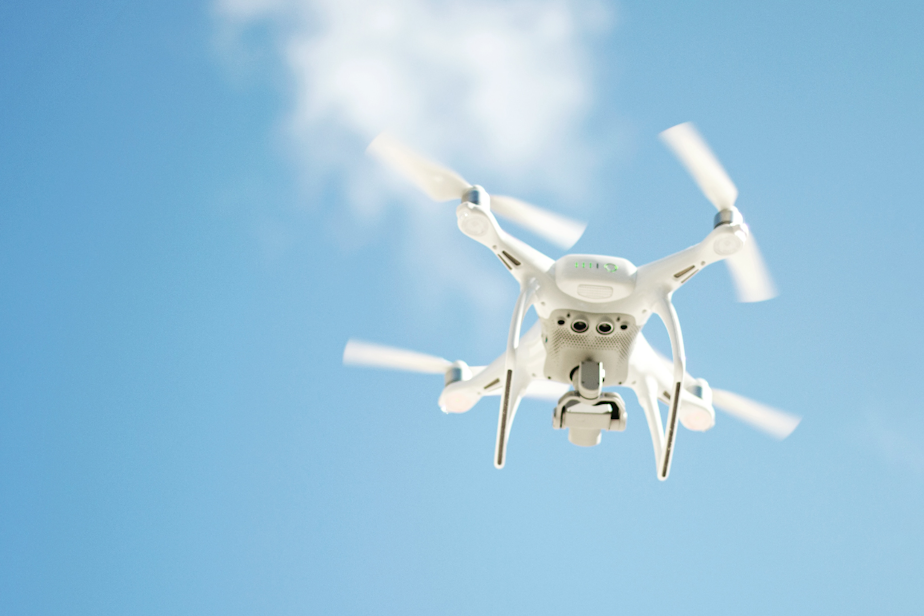Marijuana delivery drones likely won’t arrive as rumored. But they’re still not a pipe dream

The premise reeked of a futuristic stoner’s dream: flying robots that carry weed from growers to storefronts?!
That’s what a local corporation broadcasted at the end of 2019. GRN Holding Corporation wrote in December that they planned to launch six drones that would fly marijuana, between wholesale and retail, in the greater Seattle area.
GRN said they signed a letter of intent to purchase Squad Drone — a Bellevue-based company. Testing of the delivery drones has been ongoing over the last year.
Here are some specifics: The drones have a payload of 90 pounds and deliver within a range of more than six miles.
They’ll come equipped with an advanced GPS navigation system and signature interface. The drones are battery operated with an embedded hybrid system, allowing the device to recharge if needed.
The drones would be operated from a command center in Seattle, and controlled by a licensed pilot -- about 20 people would be hired to care for the drones.
GRN said the weed delivery drones could happen by March -- maybe.
But as March inches closer, the probability of seeing a flying cannabis-carrying robot anytime soon is slim, said Chris Larsen, a cannabis law expert and attorney with Halverson Law based in Normandy Park.
Larsen is a transaction attorney with a focus on the regulatory, transactional, and compliance needs of local cannabis businesses.
“My gut feeling is, I don’t see how legally it would work,” said Larsen, when presented with the hypothetical. After viewing a copy of GRN’s news release, he remained skeptical.
“I’ve been thinking for five years that Amazon was going to be the first to deliver with drones — I still haven’t seen that and I don’t see how we’d see weed jump to the forefront of drone delivery,” Larsen said.
He poked holes in the logistics of the plan. Limiting the scope to a 6-mile range would exclude growers in rural Snohomish County or in the Cascade Mountains in Eastern Washington, he said
From a regulatory standpoint, which is Larsen’s expertise, he said only those who hold a license with the Washington State Liquor and Cannabis Board could deliver from processor to retailer.
Brian Smith, communications director for the liquor and cannabis board, said by email that the board has yet to encounter licensees that would transport wholesale cannabis products by drone.
But, he didn’t poo-poo the idea entirely.
Smith said he wasn’t familiar with Federal Aviation Administration rules on commercial traffic by drone, but that it’s “not something that is prevalent now, although there are promises of (drones transporting marijuana) in the future.”
The FAA didn’t comment directly on the prospect of weed carrying drones but did send along FAA regulations on marijuana transportation.
The statement said despite state laws that legalized the drug, the transportation of weed for commercial purposes is still illegal under the Controlled Substances Act.
Justin Costello, CEO of GRN Holding Corporation, wouldn’t respond to questions over the phone, or when a reporter showed up to his office in downtown Seattle. But he did respond by email. The responses were brief.
Why do this in Seattle?
“(This) is our hometown, 'our turf.' We know the market very well.”
He said "yes," there was already potential business interest but wrote he couldn’t share any specifics.
Is this legal?“Is cannabis federally legal?” he wrote, seemingly rhetorically.
Having a license is only one hurdle, Larsen, the attorney, said, pointing to the current rules in place around how marijuana is transported on wheels.
“We’re so strict with it being locked in a vehicle I don’t see drones meeting this standard,” Larsen said.
The liquor and cannabis board had their own worries.
“Our driving concerns with transporting wholesale cannabis products are ensuring that it’s not diverted or making its way to those under age 21,” Smith wrote.
For pot drones to happen, legislative bills must be created and then passed, and there has to be regulation overhaul, Larsen said.
However, there is some benefit to transporting marijuana by drone, Costello said. It would slice logistical costs by about 90%, and there would be faster delivery and increased security.
Still, Larsen said it's unlikely to happen soon.
“This is a good example of why this industry is still challenging,” Larsen said. “When you really look at the regulations currently in place, it takes something that seems good in theory and makes it almost impossible or unworkable today.”
He said the highly-regulated industry isn’t a bad thing. It just creates added challenges for ideas like this. He said he wouldn’t plan on seeing weed drones in less than five years.
When asked in a follow-up email if the weed drones were still on track for happening by March, Costello did not respond.

